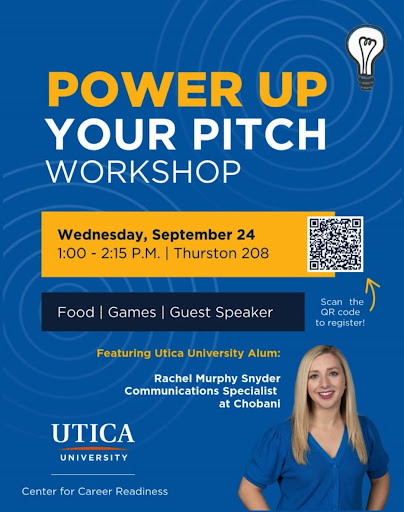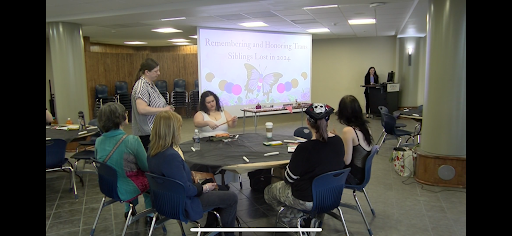Ben Mehic, Staff Writer
Happiness often comes in the form of a choice and college students are met with one immediately upon choosing their majors. A study written about in The Wall Street Journal suggests that potential earnings following graduation usually impact students’ decision-making.
Utica College student, like in many other institutions that facilitate higher learning, frequently have a difficult time picking their fields of study after completing their high-school careers. Kathleen Arcuri and Olivia Doyle, both of whom are juniors in the Communication program, are a part of that group.
“I didn’t know what I wanted to get into, but I just knew that I wanted to do something in the business field,” Arcuri said. “Until I got into college, I didn’t actually truly know what I wanted to get myself into.”
Doyle was undecided after the first two years of attending college, but ultimately became a Communication major after realizing her love for the art and its broad nature.
“I took an intro to communication class and I talked to some communication majors, and I like the fact that it’s broad. It’s not only just talking – there’s more to it,” Doyle said. “You become very well-rounded.”
Arcuri and Doyle recognize that their peers often pick fields that don’t interest them for the sole purpose of earning as much money as they can after graduation.
“A lot of times, students just pick where the money is at. But, I feel that that doesn’t mean you’re successful,” Doyle said.
“It’s a misunderstanding with what they’re getting themselves into,” Arcuri said.
As most students graduate highschool in their late teens, choosing a major that could potentially impact a lifetime-lasting career is undoubtedly daunting. That’s why Michael Strzepek, a sophomore and a Cyber Security major, found himself with his feet in both puddles.
“I kind of did both [chose major for earnings and love for it], because it’s a growing field and I enjoy working with technology,” Strzepek said.” “Since I’ve always liked doing that, I figured I’d do something I’d more enjoy, which also makes money in the future. It gets the best of both.”
Finding a niche and passion in the career field is incredibly important for the purpose of garnering happiness after graduation, as Strzepek noted.
“People who do, say, psychology might enjoy it, but other people tell them ‘there’s no future in that, so don’t do it’,” Strzepek said. “In the end, it makes more sense to do something that you more enjoy because the outcome is better. You’ll do it for longer and you won’t get burned out.”
Junior Sam Romano, experienced both sides of the decision making process first-hand. “Originally, I was going to do computer science – computer management stuff – because of more money and income, but I wasn’t passionate about it at all, so I decided to do English and Education,” Romano said. “I feel like this is what I was supposed to do originally.”
Happiness, at the end of the day, was something that Romano valued more than the earnings those in the technology field often secure after getting an education.
“When I switched back, I knew I wouldn’t make as much money, but it would make me happy. Being happy is better than being rich, miserable and potentially lonely,” Romano said. “Your happiness is something that will stay with you forever and money is fleeting.”
Romano’s experience with the process of picking a major for the money or the intended happiness has made him contemplate why people opt for the former.
“There’s a lot of pressure because the job market is shrinking, so kids feel like they need to go into a field where they will ultimately make more money,” Romano said. “A lot of times, the parents don’t really indicate that you have to be happy over everything else.”
Once the decision-making process is over and college is no longer an integral part of students’ lives, they will be left with two outcomes: a tiny, garage-sized house and a big, beating heart filled with joy or a mansion filled with rescued cats. Let’s hope that the students at Utica College made the right decision – whatever that might be.







































































































































